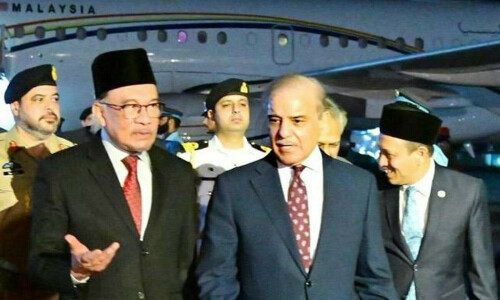When the Covid-19 health crisis struck the world forcing countries across the globe into lockdown to slow down the spread of the plague, multilateral lenders had forecast developing nations like Pakistan would see a significant drop in the remittances sent home by their migrant workers, hitting their economies hard. However, such forecasts have proved wrong — at least until now — in the case of many countries, including Pakistan.
Surprisingly, Pakistan saw an increase in these transfer even when other nations recorded a substantial decline in remittances in the first half of 2020. The boom continues with the country receiving 24 per cent more remittances in the first seven months of the ongoing fiscal year to January with these transfers totalling $16.5 billion during this period, up from $13.3bn from a year ago. Many expect this bonanza to continue for some time now even though much remains uncertain.
The government expects to receive about $28bn remittances during the current financial year, up by around 22pc from $23bn last financial year
Initially, analysts insisted that the increase in remittances in Pakistan owed to restrictions on Hajj imposed by the Saudi government to curb virus spread. The same argument was used to explain the phenomenon for other Muslim countries like Bangladesh, which has experienced a 35pc increase in these transfers since July.
Having spent less money on Hajj, the analysts said, the workers abroad had more to send back to Pakistan. Others believed the migrant Pakistani workers returning home after losing jobs in the host countries had contributed to the increased volume of remittances by bringing back their life savings.
However, the sustained increase in remittances indicates that the restrictions on international travel have played a major role in making overseas workers turn to official banking channels for transferring money to their families. Besides, the recent government curbs on hundi/hawala implemented to meet the requirements of the Financial Action Task Force to exit its so-called grey list have also helped the shift from informal channels to banking channels.
Yet another reason remittances are increasing is the rising efficiency of the banking channels used by the workers to send their money. The central bank, for example, has reduced the threshold for formal money transfers from $200 to $100.
The State Bank of Pakistan (SBP) has recently attributed the growth in remittances to the increasing use of banking channels owing to limited cross-border travel amid the second wave of the Covid-19 and the flexible exchange rate regime.
The government expects to receive about $28bn remittances during the current financial year, up by around 22pc from $23bn last financial year. Last year the country received 6.4pc higher transfers compared to the previous year.
Surprisingly, the biggest growth of over 51pc in remittances inflows comes from the United Kingdom followed by 45.8pc from the United States and over 44pc from Europe, reflecting the impact of international travel curbs. Saudi Arabia and the United Arab Emirates remain the two largest sources of remittances though. While remittances from Saudia grew by almost 22pc, the increase in transfers from the UAE was less than 7pc.
The overseas remittances accounted for more than 8.5pc of the size of the economy and have for almost two decades propped up the country’s depleted foreign currency reserves and helped mitigate balance of payments problems caused by chronically weak exports and luxury imports, which has forced Pakistan to repeatedly seek support from the International Monetary Fund since late 1980s.
In addition to stabilising the economy, the workers’ transfers have helped alleviate poverty. Recently, the remittances have helped mitigate the negative impacts of the virus plague.
The crucial importance of remittances for the economy calls for sustained efforts by the government and the central bank for convincing overseas workers to use the banking channels for transfers. This is important given the fact that the World Bank expects a decline in remittances this year as the underlying fundamentals supporting remittances remain weak.
“Lower level of economic activity, lower oil prices, and lower employment of migrant workers in the GCC region are likely to impact flows,” the World Bank said. The return home of a large number of Pakistani migrants from the Gulf countries also underscores the need for steps to maintain the current momentum of transfers.
The SBP initiative — Roshan Digital Account — that allows Pakistanis working abroad to digitally open accounts with local banks is a right step in this direction. The initiative has already attracted half a billion dollars as these accounts offer the overseas Pakistani workers the ease to bring and take out their money or invest in stocks and real estate without any hassle. Still more needs to be done.
Published in Dawn, The Business and Finance Weekly, February 22nd, 2021












































